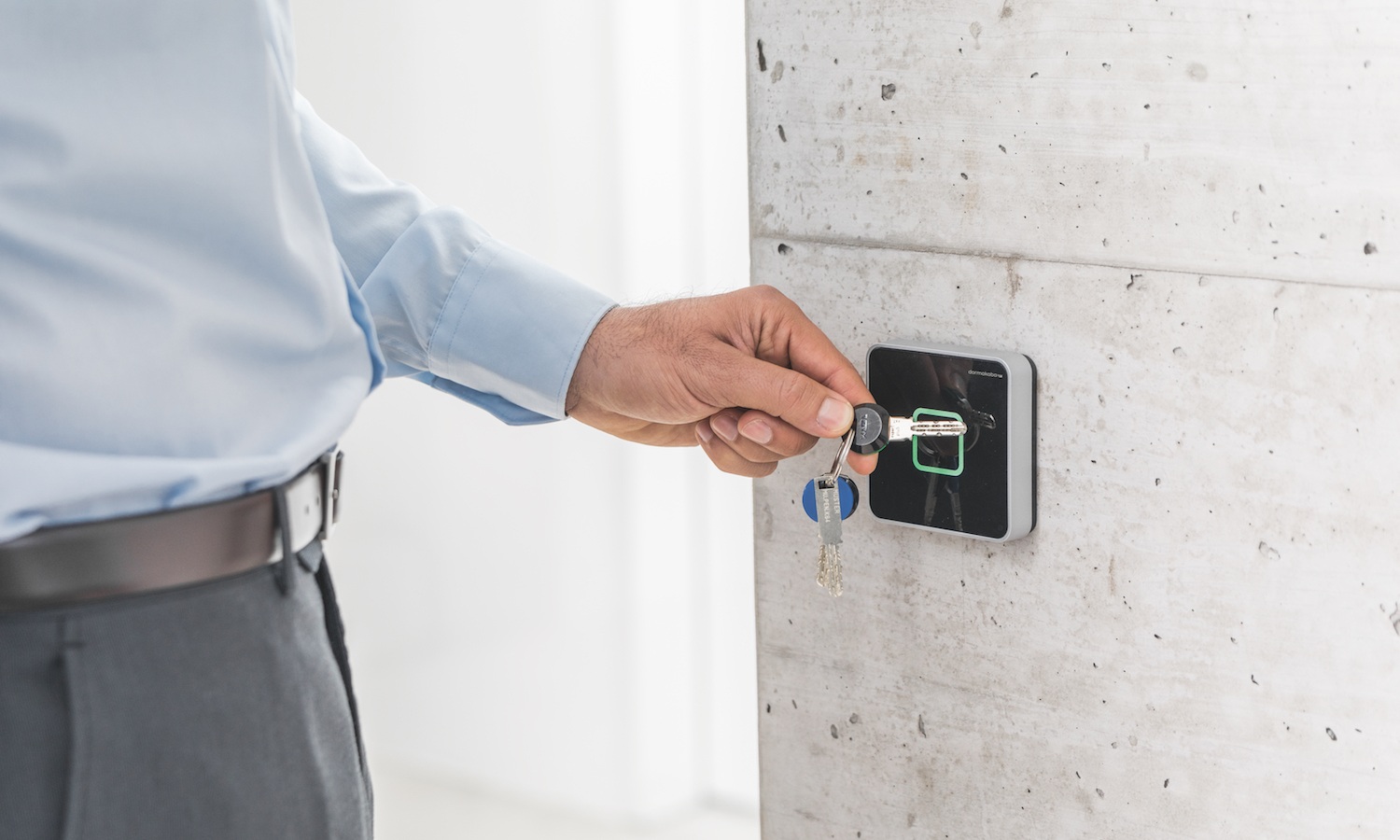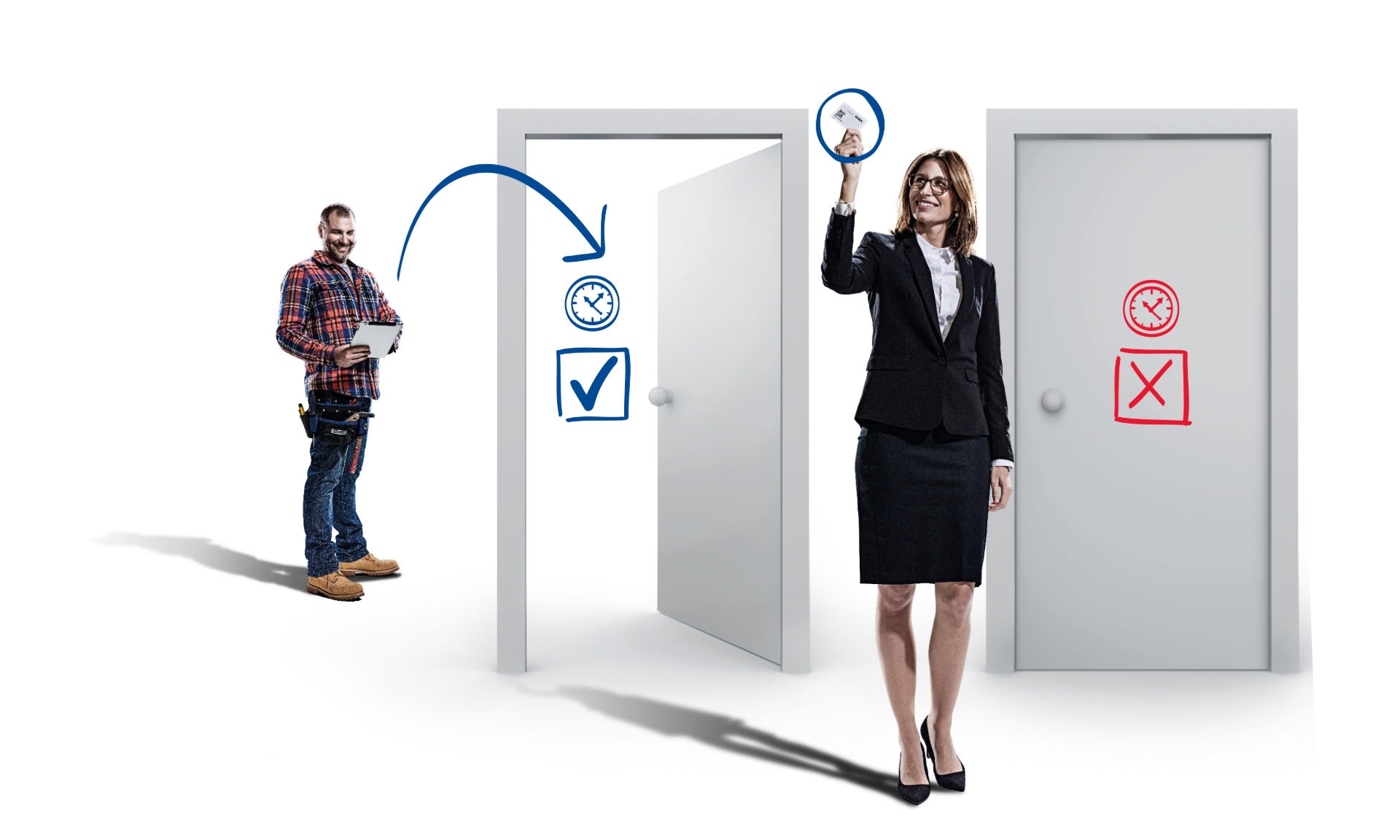Ensuring the safety and security of students and staff is an important and often complicated issue. Here, John Hardman, Product Marketing Manager at dormakaba, discusses the latest innovations in access control technology and the benefits for educational facilities.
With college and university campuses increasing in size to accommodate the growing populations of the institutions, keeping students, staff and visitors safe and buildings secure is becoming increasingly complex. This is particularly true for open campuses where access by the public is largely unrestricted.
Theft and personal safety are among the primary concerns, not only for the teaching buildings but also for student accommodation where the value of students’ possessions mean that a robust solution is required. Restricting access to certain areas of the building also has a role in ensuring safety. For example, laboratories and practical areas may contain equipment and materials that would be dangerous to unauthorised persons. To meet these requirements without unnecessarily hindering movement around the campus and buildings requires a system that can be tailored to the organisation.
Access technology has evolved significantly in recent years with one of the most important innovations being cloud based systems. These utilise an online platform to manage user access across a site and require only minimal work to be integrated into the organisation’s existing IT architecture. For large educational facilities, the integration of a new software solution can be costly, time consuming and inconvenient - whereas internet access is all that is required to get a cloud system up and running. From there they offer a simple, centralised and easy to use interface for managing all user profiles and privileges.
The flexibility of cloud-based access control systems makes them ideal for college and university settings. It allows tailored access to be established for different people or groups for specific areas of the building to create a zoned security system. This level of customisation helps overcome the challenge of allowing access to a single area of the accommodation as well as more general access to the university buildings with one access medium – such as a smartcard, key card or fob.
Access can also be further controlled at certain times of the day for specific groups. For example, access by students can be restricted at night through tailored permissions or by automatically requiring pin number entry alongside the key or badge for certain rooms during these hours. Furthermore, with a full audit trail function, these systems can record the movements of users to allow complete traceability and peace of mind for managers.
The ability to quickly and easily make changes to users’ access profiles has a number of benefits for educational facilities. The nature of the environment means that the users of the facilities change each year with some students leaving having completed their studies and new ones joining. This regular turnover of users requires a system where all privileges can be added, withdrawn or amended easily. This functionality also helps maintain campus security in the event of lost access media as the missing item can be rendered unusable to prevent unauthorised access.
This feature can aid the university and college in running efficiently on a daily basis and allows appropriate level of access to be granted easily to visitors and contractors. Outside of term time the facilities can be utilised by the public – possibly allowing additional revenue streams to be established.
With cloud based solutions new features and updates to the platform can be made and rolled out immediately rather than needing to wait for the locally installed software to be updated.
The next step in the evolution of access control is the integration of smartphones alongside existing media such as cards, fobs and smart keys, and this is already being utilised in the range of different applications. dormakaba have already utilised this technology in the hospitality sector - with smartphone room access available for guests. Using a smartphone as the access medium has a number of benefits, especially for educational organisations. The ubiquity of mobile phones provides a greater level of convenience for users and phones are much less likely to be lost or lent to other people, therefore improving the overall level of security. These devices also commonly include additional security measures such as a PIN number or passcode and a growing number of models feature biometric verification, such as fingerprint or facial recognition. This adds a further layer of security whilst maintaining the ease of use for staff and students. Furthermore, as it is now often habit to pick up your phone when you leave a room it will reduce the chance of students being locked out of a building or their accommodation.
In addition to the significant technological advancements, the diversity of solutions has proved to be an important factor in achieving a robust access control system that meets the needs of the organisation. With a wide range of options on the market it is possible to combine products into a fully scalable, bespoke system. For example, at the University of York, dormakaba installed a mix of 890 online controllers on 897 doors and 1,455 offline locks and doors in a phased deployment that covered the whole of the east campus and nine of the buildings on the west campus. The online doors were also integrated into the university’s ERP and HR systems, allowing for a reliable and accurate time recording solution for staff, students and contractors.
The access control requirements of educational facilities are complex. When specifying a solution, it is important to consider the flexibility and adaptability of the system. Innovations in cloud based solutions and the closer integration of mobile technology has the potential to improve security and deliver a higher level of convenience for users and system administrators.
To find out more about dormakaba’s full range of access control systems visit: www.dormakaba.co.uk




